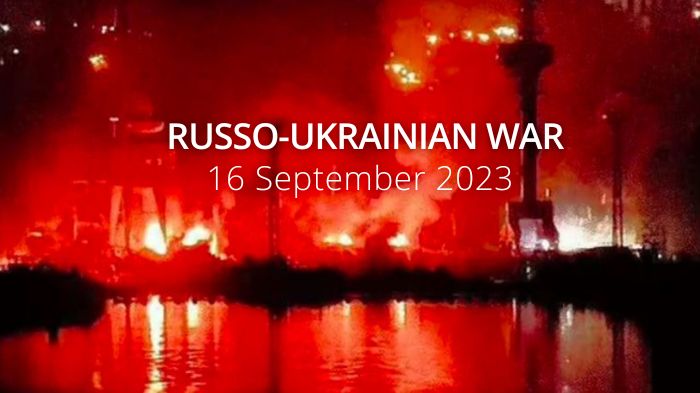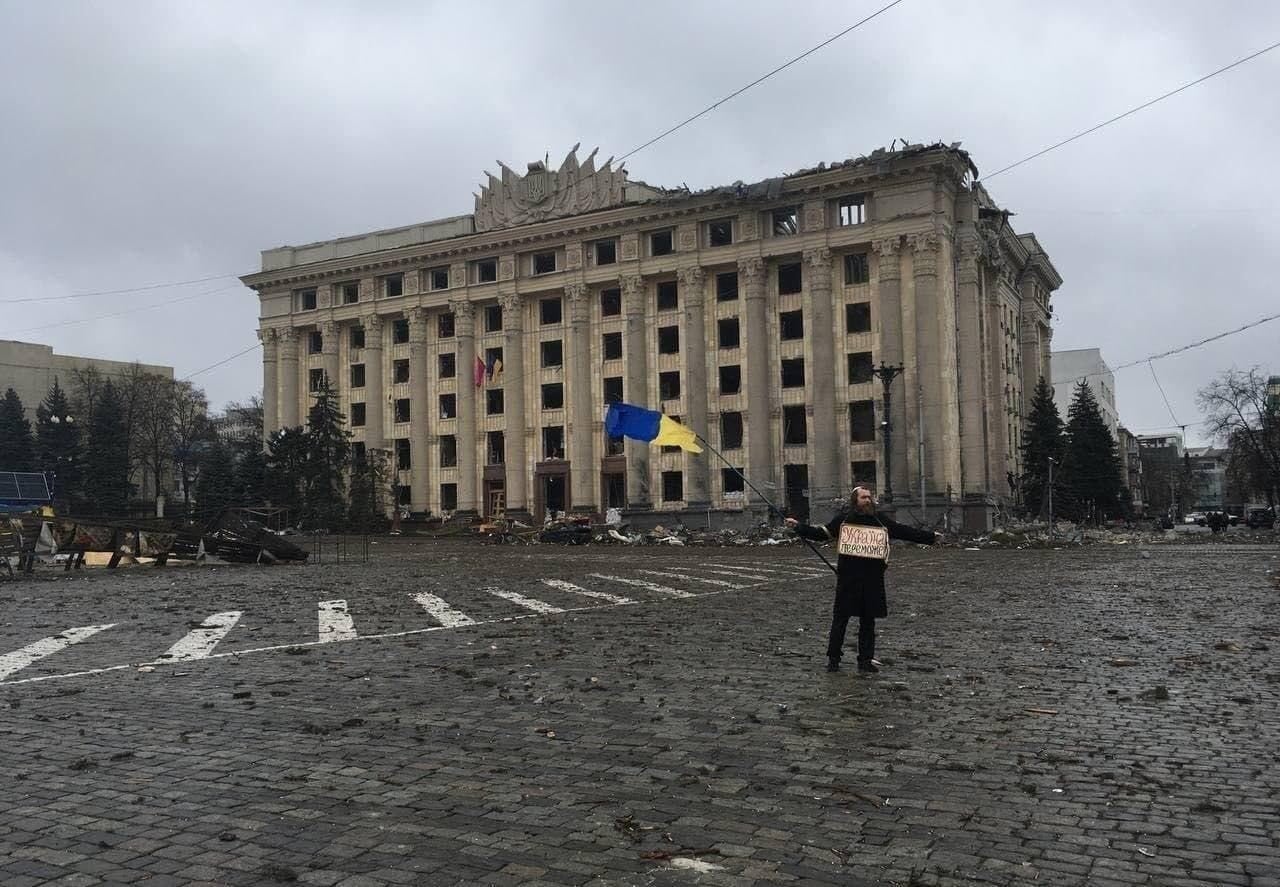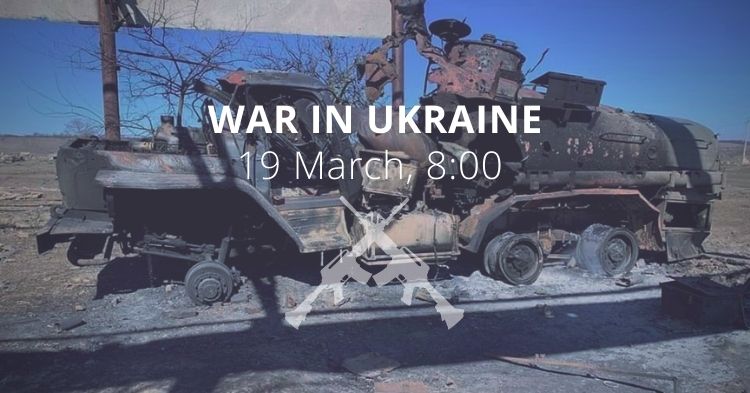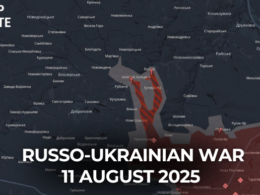Military
Ukraine’s special ops landed in Crimea to guide missile strike on Russian warships. In a unique operation, Ukraine's Special Operation Forces landed in occupied Crimea to direct a high-precision missile strike on a Russian landing ship and submarine in Sevastopol.
Ukrainian Navy: Russians evacuate landing ships from Black Sea after Ukrainian attacks. Following the loss of several vessels in the Black Sea to Ukrainian strikes, the Russians have relocated three large landing ships to the Sea of Azov. This week, Ukraine damaged or destroyed at least four ships in the Black Sea.
Russian saboteur targets own, blows up military trucks in occupied Ukraine. The Ukrainian partisan group Atesh reported conducting a successful sabotage operation in Henichesk, a Russian-occupied town on the Azov Sea coast. They recruited a Russian soldier who blew up two trucks with Russians onboard, the National Resistance Center confirmed. The vehicles were completely destroyed.
Five injured after massive Russian Iskander missile strike on Kharkiv. There were at least five hits to the east-Ukrainian city in the morning of 16 September, and a seven-meter-long crater was created at the impact site
Russian shelling kills two, injures two in Kharkiv Oblast. On 16 September, Russian troops shelled private houses and two civilian cars in Kharkiv Oblast with artillery and anti-tank missile system, killing two civilians and wounding two more.
Frontline report: Russian defense along railroad begins to collapse as Ukrainians liberate Andriivka. Frontline report: Following the recent liberation of Andriivka, Ukrainian troops are actively working to reinforce control over their newly gained territories in the area while also targeting Russian positions along the railway.
Russia deploys additional forces to Zaporizhzhia direction, digs in Kherson region - Operational Command South, Ukrinform reported Friday, citing Natalia Humeniuk, head of the Joint Press Centre of the Operational Command South. “At the moment, we do not observe the creation of critical strike groups in our area of responsibility, but we see powerful manoeuvres, they are trying to replace some forces with others, trying to transfer additional capacities to the Zaporizhzhia direction. We would like to reinforce the Kherson direction as well, but so far we do not have such critical reserves, although we see the reformatting of the groups. Obviously, they are trying to calculate which directions will be the most threatening for them, noted Humeniuk.
As of 16 Sep 2023, the approximate losses of weapons and military equipment of the Russian Armed Forces from the beginning of the invasion to the present day:
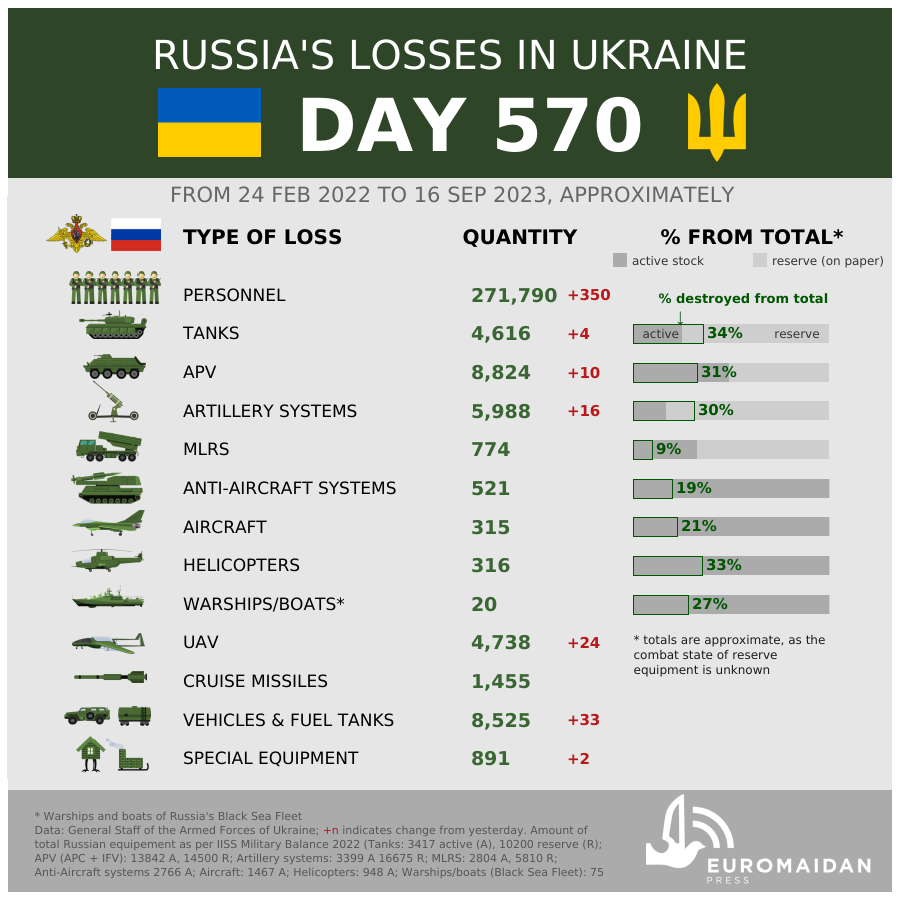
-
-
- Personnel: 271790 (+350)
- Tanks: 4616 (+4)
- APV: 8824 (+10)
- Artillery systems: 5988 (+16)
- MLRS: 774
- Anti-aircraft systems: 521
- Aircraft: 315
- Helicopters: 316
- Warships/boats: 20
- UAV: 4738 (+24)
- Cruise missiles: 1455
- Vehicles and fuel tanks: 8525 (+33)
- Special equipment: 891 (+2)
-
Photo of the day
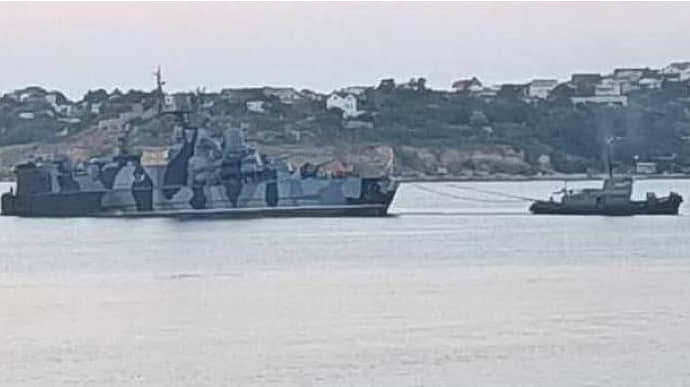
Intelligence and Technology
UK intel: Russia likely prepares for new missile strikes on Ukraine’s energy infrastructure over winter. Russia is preparing for new attempts to plunge Ukraine into cold and darkness over winter, stockpiling missiles for new strikes on energy infrastructure.
Intelligence: Chechen leader Kadyrov in critical condition. Ukraine's Security Service has confirmed that Chechnya's head Ramzan Kadyrov is in serious condition due to illnesses.
ISW: Russian MP says culture of lies in Russian military prevents victory in Ukraine. A Russian official has said that the culture of lying in the Russian military prevents a Russian victory in Ukraine and leads to poor decision-making within the Russian military, ISW reported.
International
Poland bans entry of Russia-registered cars. Poland will ban entry of passenger cars registered in Russia starting 17 September. This follows a ban by the Baltic states and a planned ban by Finland.
Energoatom sends first batch of mined uranium to Canada for conversion. Ukraine has started exporting uranium to Canada as part of an agreement between Ukrainian Energoatom and Canadian CAMECO.
Germans split over whether Ukraine should be forced to give up land to Russia. 41% of Germans think Ukraine should agree to territorial concessions; 43% disagree
Poland, Hungary, and Slovakia prolong unilateral restrictions on Ukrainian grain imports, defying EU. This happens despite the European Commission's decision to lift the embargo on imports of Ukrainian produce. Bulgaria has lifted its ban and Romania is still on the fence
Humanitarian and Social Impact
35,000 Jewish pilgrims arrived in Ukraine for New Year, defying war. 35,000 Hasidic Jews have traveled to Uman in the Cherkasy Oblast, according to the Ukrainian Ministry of Internal Affairs. This marks the second time they are celebrating the Jewish New Year in Ukraine during the full-scale invasion by Russia. Before the war, nearly 40,000 Hasidic Jews visited Ukraine for this occasion.
One more ship leaves Odesa Port, approaches Bosphorus Strait, Ukrinform reports, citing Deputy Prime Minister for Restoration of Ukraine and Minister for Communities, Territories and Infrastructure Development Oleksandr Kubrakov. “One more vessel, which used to stay blocked in Ukraine due to Russia’s full-scale invasion, has left Odesa Port and is now sailing through the temporary ship traffic corridor. […] The bulk carrier entered Odesa Port on February 19, 2022 and had been unable to leave the port since then due to hostilities and the closure of certain Black Sea areas.
UN expects worsening of humanitarian situation in Ukraine, Ukrinform reports, citing Saviano Abreu, spokesperson for the UN Office for the Coordination of Humanitarian Affairs (OCHA) in Ukraine in an interview with Interfax-Ukraine. “The UN expects the humanitarian situation in Ukraine to worsen if the current trend continues and plans to provide humanitarian aid to 11 million Ukrainians this year."
Political Developments
Russians start selling “nationalized” Ukrainian property in occupied Crimea, including Zelenskyy’s apartment. The government of the occupied peninsula expects to earn over $16 mn from the sale of stolen Ukrainian real estate
Resistance center: Russia sets up new PMC under Surovikin, eyes Wagner recruits. General Sergei Surovikin, who disappeared after a Wagner Group mutiny in June, is now spearheading a Russian PMC seeking to poach Wagner fighters
New Developments
Insider: Deported Moldova Sputnik chief revealed as career GRU spy. Before becoming the chief of Russian state media abroad, Vitaly Denisov started his career as a Ukrainian military school graduate and eventually worked his way up in the GRU, an investigative report claims.
In the other news
Telegraph: Stop training Ukrainians to be Nato-style officers, think tank warns. Royal United Services Institute says Kyiv’s forces need to be prepared for their own battlefield "where they have different tools."
The Royal United Services Institute (Rusi) has cautioned Western nations against training Ukrainian officers in Nato-style tactics, emphasizing the need for more context-specific battlefield training. According to Rusi, Ukraine's counter-offensive against Russian forces has faced challenges due to a shortage of staff officers capable of coordinating large-scale assaults. The report suggests that rather than adhering to Nato-standard norms, Western training programs should tailor their approach to the unique conditions in Ukraine. Dr. Jack Watling, the report's co-author, warns against teaching Nato procedures to Ukrainian officers, as they may struggle to apply these tactics effectively given the differences in equipment and terminology in their home country.
Rusi additionally suggests that Western training support should better align with Ukrainian structures, addressing issues such as translation and relevance to soldiers' needs. The disconnect arises from the inability of Nato instructors to observe front-line activities and safety standards that hinder collective training. Rusi concludes that Western training programs provide only a modest improvement over Ukraine's existing capabilities, as instruction time is limited, and the country constantly needs to replenish its forces due to the threat of Russian attacks.
Ukraine World: It Is Not Only Putin’s War. Lesia Ogryzko, head of analytics and strategic advocacy at the Center for Defence Strategies, gives four reasons why the aggression by Russia against Ukraine cannot be solely attributed to Putin's leadership.
- It is rooted in centuries-old Russian ideological frameworks, including nationalist movements like Slavophilia and Euroasianism, which promote Russia's "special path" and deny other nations' rights.
- Russia's media landscape, dominated by state-controlled propaganda, reinforces these constructs, making the population complicit in the aggression.
- Statistical data shows significant support for Russian aggression, with 70% of Russians backing it in a recent poll.
- This support extends to various social groups, including military personnel, defense industry workers, propagandists, and public organizations. Russian aggression in Ukraine is not just Putin's war; it involves a wide circle of people supporting or directly participating in it.
In her 2022 State of the European Union (SOTEU) address, European Commission President Ursula von der Leyen shifted focus away from supporting Ukraine and countering Russia. Instead, she emphasized issues like climate change, EU enlargement, digital risks, and competing economically with China, European Pravda writes.
Last year, Ukraine was the central topic of SOTEU, with von der Leyen wearing Ukraine's colors in solidarity. This year, references to Ukraine were limited, indicating possible "Ukraine fatigue" in the EU. The war was only briefly mentioned towards the end as part of Europe's duty to support Ukraine.
The upcoming European elections shaped the tone of this year's speech. Von der Leyen called for completing the EU through enlargement, especially for Ukraine and Western Balkans countries. She proposed policy reviews to accommodate a larger EU. Annual rule of law reports would also extend to candidate countries.
On China, von der Leyen announced investigating cheap Chinese electric car exports unfairly subsidized by the state. She also highlighted building economic ties between the EU, India, and the Middle East. For Africa, she urged a unified EU approach to address instability exploited by Russia.
Climate change was a major focus, portraying the Green Deal as securing EU prosperity. Support for European industry to implement the deal was pledged. Von der Leyen praised progress on reducing energy prices and securing supply despite Russia's gas cutoffs.
She also emphasized EU leadership in managing digital risks, touting the Digital Services Act. Similar rules for artificial intelligence were urged. Overall, von der Leyen portrayed the EU as newly assertive geopolitically while outlining an ambitious agenda for the future.
Read the daily review for Sat Sep 16 2023 here

